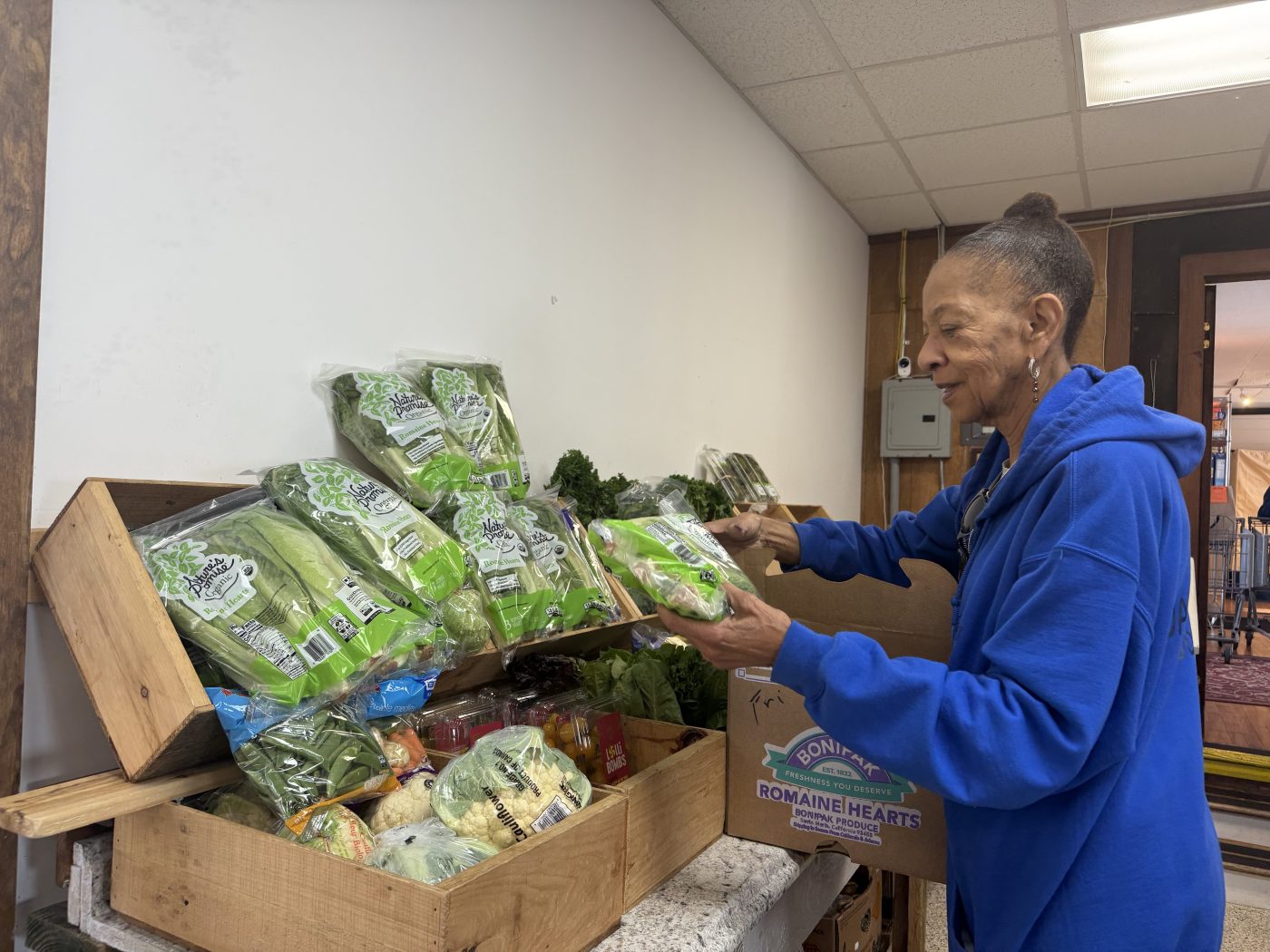ACCORD, N.Y. — The Town of Rochester Food Pantry is experiencing an unprecedented surge in demand as local residents face the loss of their Supplemental Nutrition Assistance Program (SNAP) funding. Lines stretched outside the pantry on Friday morning, highlighting the urgent need for food assistance in the community.
Since November began, the pantry has observed a significant increase in patrons, attributed to the ongoing government shutdown, which is now the longest in American history. Typically serving between 120 and 140 families each month, the pantry saw a sharp rise in visitors, with numbers jumping from 15 to 26 in one day alone. “That’s a 66% increase,” noted Marge Bonner, co-chair of the pantry, during a recent visit.
The impact of the funding crisis is being felt acutely in this rural area, where public transportation is limited and grocery store access is sparse. “We used to receive food twice a month from the New York State Food Bank,” Bonner explained. “Now, we have to put in extra orders, like the recent one for about 2,800 pounds of food.”
Many patrons have reported losing their SNAP benefits, which are crucial for low-income families. For example, one woman who visited the pantry has six children and expressed her distress over losing support that provided for each child. “With SNAP, you get a certain amount per child,” Bonner added. “The ramifications of having those benefits taken away are significant.”
In response to the rising needs, the pantry opened on Saturday, extending its services to those affected by the funding cuts. SNAP benefits are typically loaded onto debit cards each month and can only be used for groceries at authorized retailers. The average monthly benefit stands at approximately $187 per person, with many recipients living below the poverty line.
The funding disruptions stem from a political impasse in the U.S. Senate, which has failed to pass a bill to support government programs since the shutdown began in October. Initially, the previous administration had agreed to provide partial funding through November. However, a federal judge later mandated complete funding, a ruling that was blocked by the Supreme Court on Friday. In a positive development, New York Governor Kathy Hochul announced plans to fully fund SNAP through state agencies, with benefits expected to be restored for New Yorkers starting Sunday.
While it remains unclear when the full payouts will resume for the 7,091 households in Ulster County receiving SNAP, many residents are relying on local food pantries for supplemental assistance. Just before the funding lapse, Ulster County Executive Jen Metzger pledged nearly $350,000 to the county’s three largest food pantries, but smaller facilities are left to depend on community support.
In rural towns like Phoenicia, food pantries are often located in religious institutions. Volunteers at the Phoenicia United Methodist Church serve the isolated Catskill mountain communities. “We’ve seen a 20 to 30% increase in visitors in the past two weeks,” said Jane Todd, director of the Phoenicia pantry. Many families travel from a wide area, some over a 100 square mile radius, to access food assistance.
Transportation remains a significant hurdle for many residents. The nearest full-service grocery store is several miles away, making it difficult for those without vehicles to obtain necessary supplies. To mitigate this issue, volunteers often deliver food directly to residents in need, extending their reach throughout the Catskill Park.
Community support remains strong despite the challenges. Pastor Ralph Merante of the Phoenicia church expressed gratitude for the community’s response, stating, “On the Facebook feed, the whole town was just asking, ‘What do we do? What do they need?’ It’s been wonderful.”
The situation is similar at the Loaves and Fishes Food Pantry in Wallkill, where volunteers are also experiencing increased patronage due to SNAP uncertainties. Located outside the Wallkill Reformed Church, the pantry serves residents across a wide area, including parts of Orange County. “We had an increase of 10 to 15 people compared to our normal numbers,” reported Judith Meier, director of the pantry.
As the issues surrounding SNAP funding continue to unfold, local food pantries are stepping up to meet the growing needs of their communities. Volunteers remain optimistic, highlighting the resilience and generosity of the community in supporting those who are struggling. “The donations from the community have stepped up,” said volunteer Cindy Detz. “It’s just wonderful to see the pantry stocked this well.”
